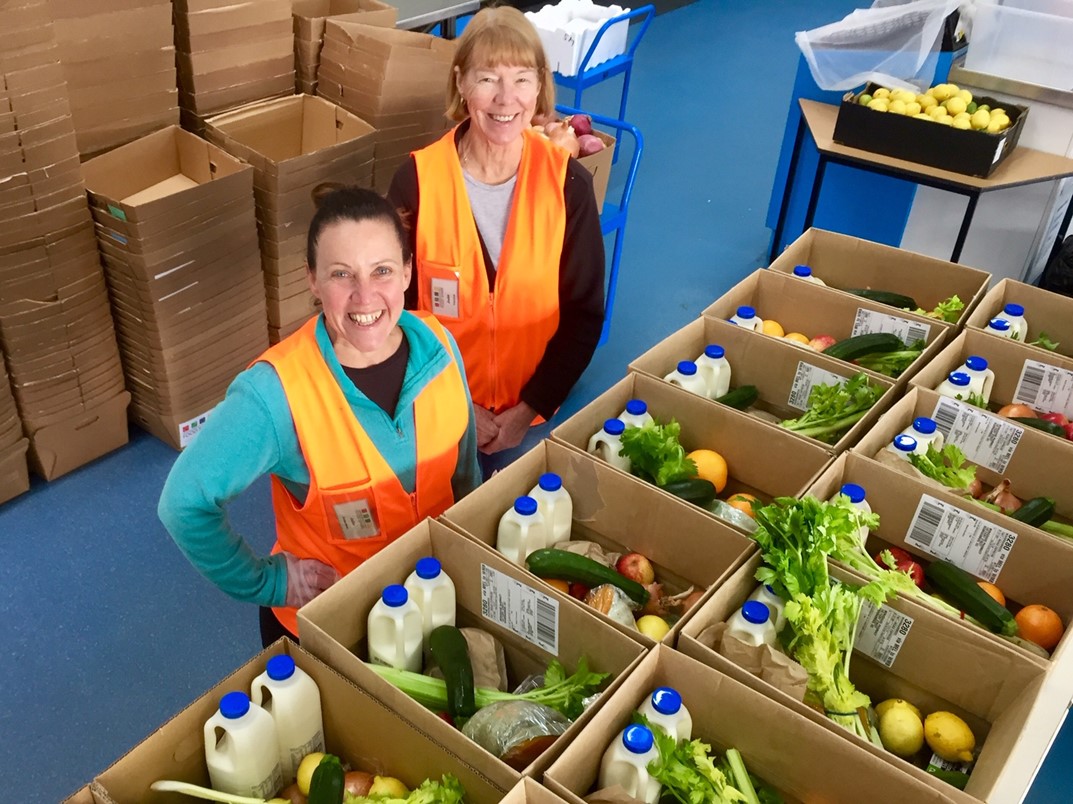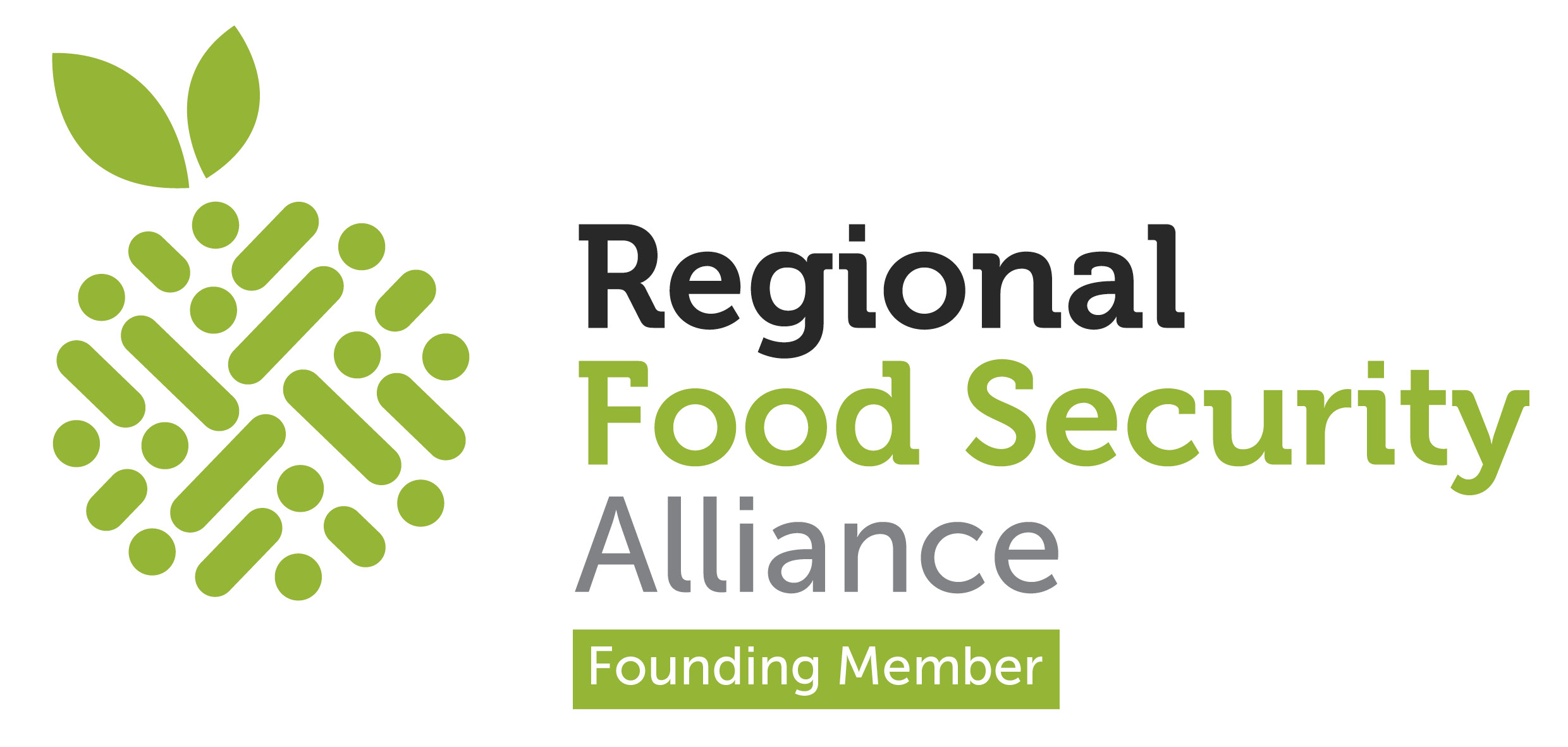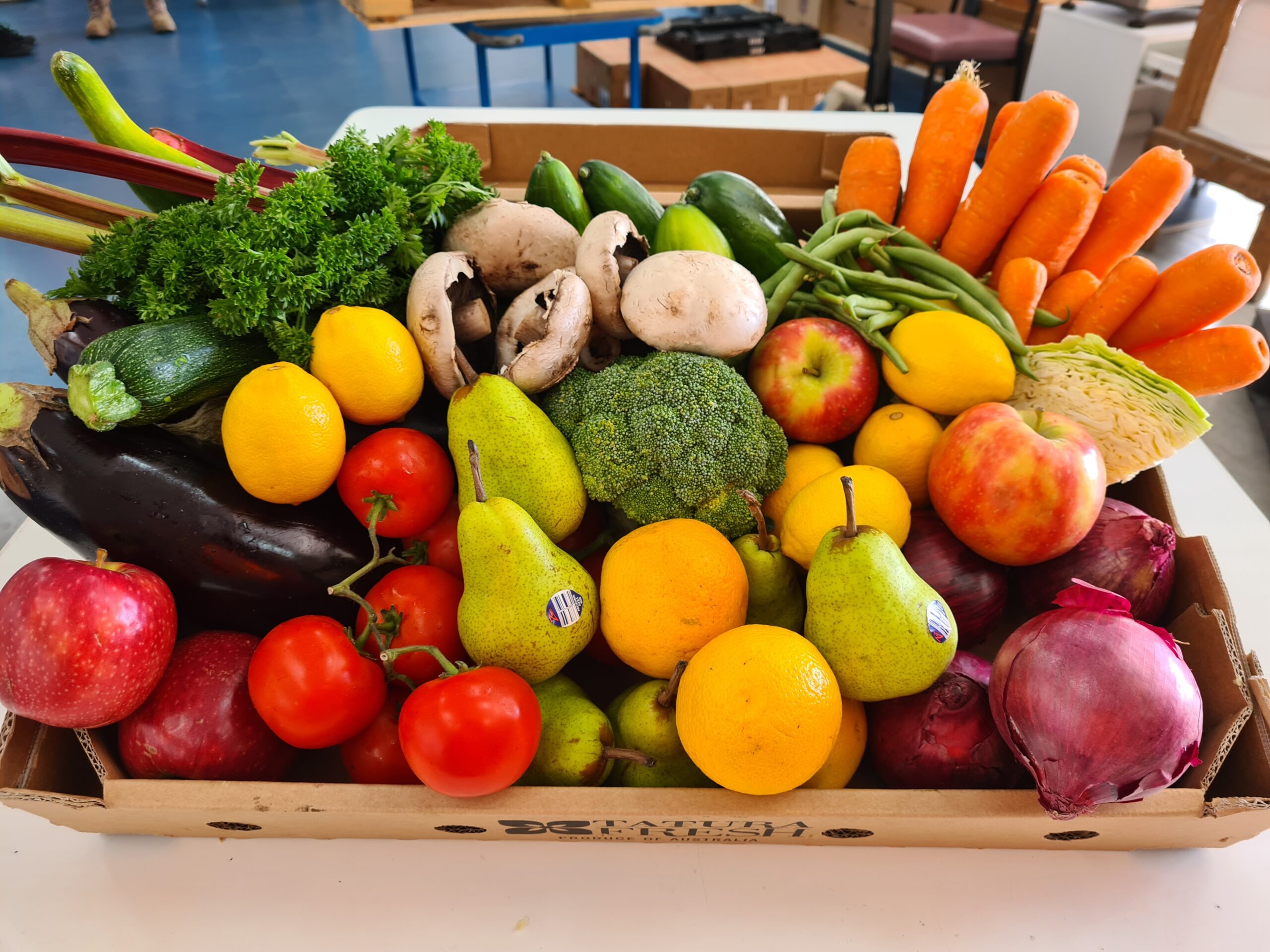We are a Not-for-profit organisation with 100 volunteers and over 120 partner organisations who help us distribute emergency food to over 50,000 people annually across south west Victoria.
About Us
As a designated Regional Food Hub, we are tasked to respond to natural disasters and designated emergencies providing much needed food relief coordination. Our primary aim is to distribute food to those in need addressing food insecurity* across our region.
In addition, we support vocational pathways including students completing their Diploma of Community Services placement and Office Administration Trainees (4 students in 2023). An additional focus is food literacy and education in partnership with South West Health Care, United Way Glenelg and Sea Change Portland – with these easy to cook basic recipes being developed for inclusion in our emergency food hampers.
Monday to Friday we rescue surplus food from local bakeries, supermarkets and producers diverting it from landfill. Food is supplied to us weekly by Food Bank Victoria and FareShare along with many local businesses. Our wonderful community regularly donate food and we purchase essential food products with the money donated to us. All food donated is sorted and is suitable for human consumption meeting food safety standards.
Food is distributed via our registered agencies in emergency food hampers (three days’ supply of food), schools food programs (lunch, fruit, and healthy snacks), community meals i.e., soup kitchens, community breakfast and lunch programs (bulk orders) and bulk pantry product to regional partners to further distribute across the region. Large charities including the Salvation Army, Anglicare, and St Vincent DePaul, along with many NFP, community, indigenous and church groups assist us to distribute food.
In 2023 181 tonne of fresh, frozen, and ambient (pantry) food was distributed from our warehouse to partner agencies and schools feeding over 27,000 children and 42,000 adults.


Food insecurity occurs when people lack secure access to sufficient amounts of safe and nutritious food for normal growth and development and active and healthy life. Food insecurity affects regional Victorians disproportionately to people residing in metropolitan areas (15.1% of regional Victorians vs 12.6% in metro areas) [1]. Over 4500* children in our region live in poverty.
For more information read Taking the Pulse of the Nation Informing Australian economic & social policy. A Melbourne Institute & Roy Morgan partnership 6/10/2022te & Roy Morgan partnership 6/10/2022
[1] Every Suburb, Every Town. 2018 VCOSS Poverty Report https://vcoss.org.au/policy/every-suburb-every-town/
Understanding food insecurity – we run tailored educational tours of our warehouse for school and corporate groups on Monday, Wednesday and Thursday afternoons, including a hands-on volunteering, if you are interested in this opportunity, please make contact on 0428 197 715. To assist your group to prepare for a tour please…
click here for our School Visits Checklist
click here for our Corporate Visits Checklist
Note – we have put in place a list of information and requirements for groups wishing to visit us – this is to keep our staff and volunteers safe, and the warehouse open ensuring emergency food is distributed to those in need.
